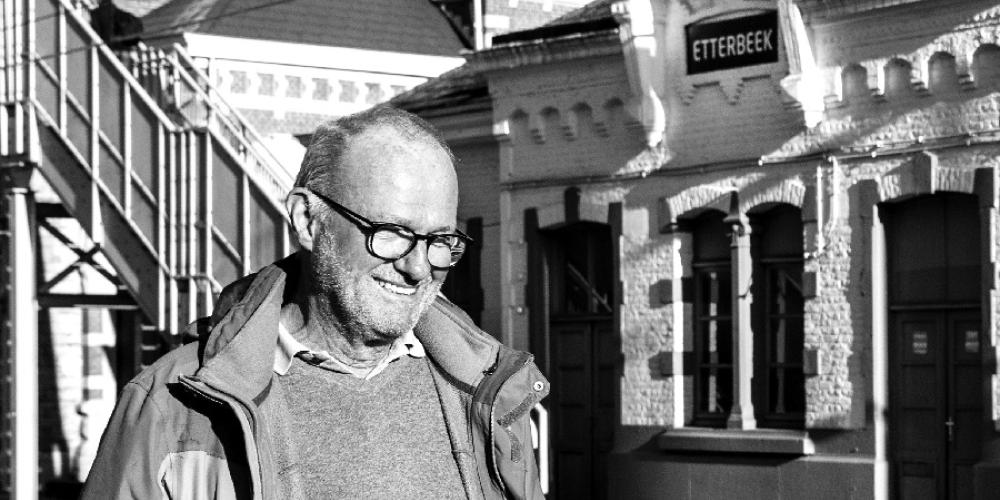
The coronavirus has severely disrupted our daily lives. Schools, restaurants, bars, cinemas and shops are closed, public events have been cancelled. Public life has come to a halt and we have retreated into the private sphere. Today we are mainly working from home.
What we have experienced in the past two weeks was unimaginable until very recently. Nobody had thought such a situation would be possible, not even when the pictures from Wuhan were appearing in the papers each day. And we have no idea how it will progress. We don’t know how long this crisis will last, we have no insight into the long-term economic consequences. We can only guess what the impact will be on the more vulnerable members of our society, such as disadvantaged children who have been cut off from school for so long. And we don’t know how many families will be affected by the virus and by the death of loved ones.
For time researchers, this crisis offers unprecedented opportunities. Scientists often learn more from crises and pathological situations than from normality. Psychologists learn from pathologies how the human mind functions, doctors learn from illness what health is, unexpected phenomena in nature lead to new discoveries in biology. It’s no different in sociology. The research group TOR organised its first time-use survey in 1984 among jobseekers. By studying how jobseekers used the free time they had as a consequence of unemployment and how they built new routines, we gained an insight into how time-structuring works. Thirty-five years later, we studied another group who for a short time switched to a different time regime. In 2019, the employees of Femma, a women’s organisation, spent a whole year working a 30-hour week instead of a 36-hour week. This experiment was an opportunity for us to observe how a radical reduction in and reorganisation of working time impacted family time and led to new schedules. Similar studies can also teach us how work, family time and free time can be balanced. Or how daily and weekly cycles, social relations, opening hours and the media can structure and synchronise our use of time.
However, what the coronavirus crisis has triggered is of another order altogether. In just a couple of weeks, daily life as we know it from our usual time use studies has drastically changed. This isn’t about individuals experiencing major changes in their personal time: losing a job, retiring, reducing their working hours... Not only have our personal schedules been fundamentally disrupted in just a few days, the collective rhythms that structure our daily lives have largely disappeared. The traditional social time markers, such as work time, school time, opening hours, no longer apply. Spheres of life that in modern society are often strictly separated – family, work, education, care, relaxing – have from one day to the next been brought back into the family sphere. Work times, opening hours, public transport times, week and weekend, holidays… To a large extent it has all become meaningless. Even the changing of the clocks to summer time is a trivial matter this year – what does it matter when there are no longer any fixed times?
This disruption to our routines perhaps also offers us opportunities. Restrictions often lead to new possibilities. Maybe it will get us thinking about the constant rush in our everyday lives, maybe it will make us reflect on how we spend our time. Maybe it will also lead to new forms of working and collaborating.
But maybe after this crisis we will realise more than ever that working is a social activity that is better separated from the family sphere, that it is nice to be able to work without having clamouring children around us, and that it’s nice to be able to relax away from the family, with other people. Maybe we will also notice that shopping in real shops, with real people, is much nicer than shopping online. And perhaps we will also come to the realisation that a collective schedule doesn’t necessarily create restrictions but is necessary for social life to run smoothly.
To understand the changes in people’s time-use patterns, and how they are evolving the longer the crisis lasts, we are still looking for people who are willing to take part in our time-use study.
JOIN IN the VUB research
The research group TOR at Vrije Universiteit Brussel and the research bureau hbits are investigating the social consequences of the coronavirus crisis. Take part in the research and tell us how your daily life has changed via www.everydaylife.eu (and spread this message among friends and family via social media).
Ignace Glorieux – ignace.glorieux@vub.be – time sociologist – Research group TOR, Sociology department VUB